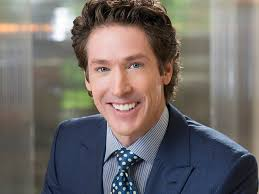As A Nation, We're Screwed.
-
@Jolly said in As A Nation, We're Screwed.:
So how does the theory fit a religious scientist?
That probably depends on the specifics of the religion and also the branch of science. You're probably not going to find a Jehovah's Witness running a blood bank.
The religious scientists I know tend to separate the two. I had a really smart friend who was a fairly devout Muslim, and who believed in the creationist teachings, but also took a number of classes in theoretical astronomy. He wouldn't accept evolutionary theory, but he had no problem at all discussing the Big Bang in intricate detail.
Somebody whose books I ran into as a student was John Polkinghorne, who was a theoretical physicist and Anglican Priest. He said the two approaches gave him binocular vision, and his book on Quantum Mechanics that I read was really interesting. It was mostly physics, but he did ask the question about whether God could be considered to be an ever present observer with regard to the Uncertainty Principal.
-
@Jolly said in As A Nation, We're Screwed.:
So how does the theory fit a religious scientist?
Polytheism's a thing. You can even have preferences or tiers. All-or-nothing is a relatively new idea.
And then there are others who view science only as a day job. I should mention that my crazy theory doesn't mean I think all scientists worship Reason. Just that some absolutely act that out.
-
@Jolly said in As A Nation, We're Screwed.:
So how does the theory fit a religious scientist?
Polytheism's a thing. You can even have preferences or tiers. All-or-nothing is a relatively new idea.
And then there are others who view science only as a day job. I should mention that my crazy theory doesn't mean I think all scientists worship Reason. Just that some absolutely act that out.
@Aqua-Letifer said in As A Nation, We're Screwed.:
And then there are others who view science only as a day job.
The same can be said of religion.

-
@Jolly said in As A Nation, We're Screwed.:
Lad could eat saw briars through a picket fence.
Prosperity Gospel is not Biblical.
No, but by Aqua's argument it's religious. Presumably, there must be millions of people who think this guy is freaking great.
I'd call it bad religion, but that's just me.
-
@Aqua-Letifer said in As A Nation, We're Screwed.:
And then there are others who view science only as a day job.
The same can be said of religion.

@Doctor-Phibes said in As A Nation, We're Screwed.:
@Aqua-Letifer said in As A Nation, We're Screwed.:
And then there are others who view science only as a day job.
The same can be said of religion.

Indeed so!
-
@Jolly said in As A Nation, We're Screwed.:
Lad could eat saw briars through a picket fence.
Prosperity Gospel is not Biblical.
No, but by Aqua's argument it's religious. Presumably, there must be millions of people who think this guy is freaking great.
I'd call it bad religion, but that's just me.
@Doctor-Phibes said in As A Nation, We're Screwed.:
@Jolly said in As A Nation, We're Screwed.:
Lad could eat saw briars through a picket fence.
Prosperity Gospel is not Biblical.
No, but by Aqua's argument it's religious. Presumably, there must be millions of people who think this guy is freaking great.
I'd call it bad religion, but that's just me.
I'd say it's more of a cult.
-
@Jolly said in As A Nation, We're Screwed.:
Lad could eat saw briars through a picket fence.
Prosperity Gospel is not Biblical.
No, but by Aqua's argument it's religious. Presumably, there must be millions of people who think this guy is freaking great.
I'd call it bad religion, but that's just me.
@Doctor-Phibes said in As A Nation, We're Screwed.:
@Jolly said in As A Nation, We're Screwed.:
Lad could eat saw briars through a picket fence.
Prosperity Gospel is not Biblical.
No, but by Aqua's argument it could be religious, depending on the actions taken and the motivations for those actions.
FIFY. Not all scientists are religious about science. Same goes for Christians and Christianity.
-
@Jolly said in As A Nation, We're Screwed.:
Ah, but if they are not religious, are they actually Christians?
I'd say nope. Which I hope illustrates part of the problem of separating people who say they are/are not religious, and whether they actually are/are not.